- Private car and driver in Delhi / India
- +91-8447445445
- info@discoverindiabycar.com sugar.ankit@yahoo.com
 +91-9818434712
+91-9818434712
What is tour and travel management?
The field of travel and tourism management entails organizing, planning, and supervising the various aspects of the tourism sector. This complex and ever-changing area has made tremendous strides in the last several decades. There is a fine line between gratification and stress for those who work in the tourist industry
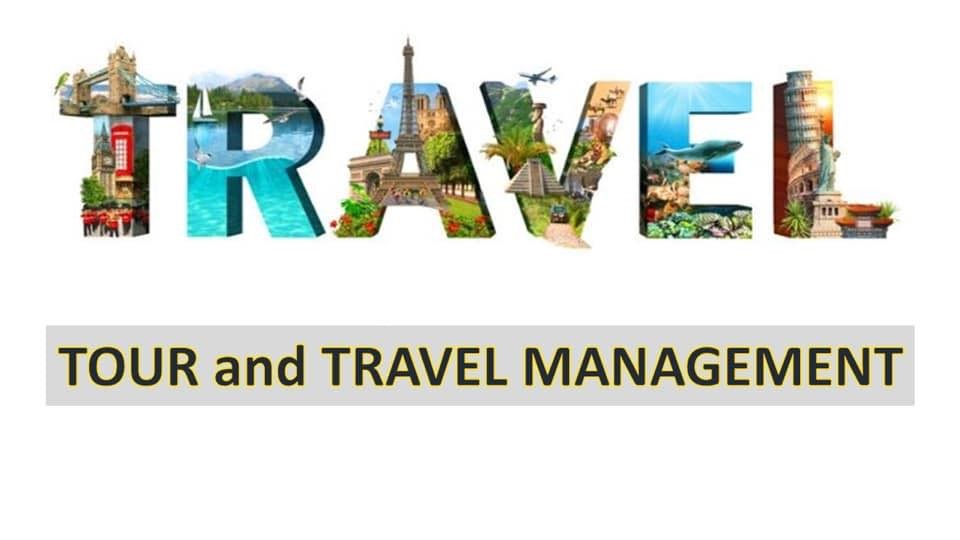
A Concise Introduction to Tourism and Travel Management
A career in tourist management may be a good fit for you if you have a passion for travel and are good at handling all types of people and situations. The events, activities, and services that cater to tourists are the responsibility of this sector.
Management in the travel and tourist industry serves what purpose?
Organizing, arranging, and facilitating services and activities related to tourism is one way to describe travel and tourist management. Hotel management, attraction management, event management, and a host of other travel-related services are all part of the job description. Making ensuring tourists have a good time while showcasing a place’s history, culture, and natural beauty is what travel and tourism management is all about.
Versed in the travel and tourist industry Different Subsets of the Tourism Sector
Hotels, attractions, events, and transportation are all part of the larger travel and tourism sector. “Transportation” describes the means by which tourists go from their origin to their final destination, whilst “accommodation” describes the many different types of housing that are accessible to them. Attractions and events draw crowds because they offer something visually appealing. But services and goods like restaurants, tour guides, and travel companies are all part of the tourism sector.
Tourist Categorizations
There are many subsets within the tourism industry, such as international, domestic, and outbound travel. Inbound tourism refers to travel to a destination outside of one’s home country, whereas domestic tourism describes travel within one’s own country. The term “outbound tourism” is used in the context of the travel industry to describe tourists who go beyond their native nation to experience a different culture.
Supervising the Promotion and Marketing of Destinations
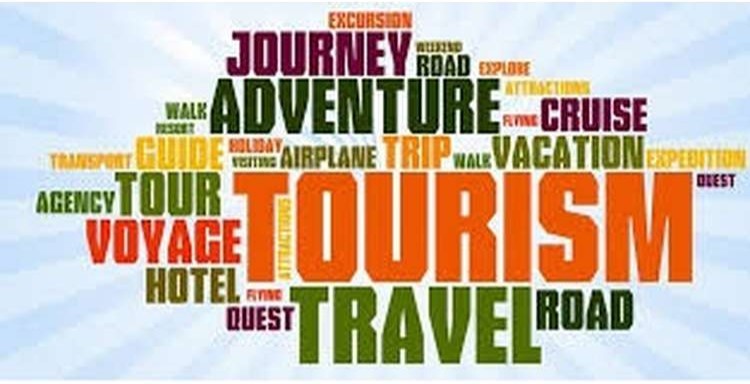
The Role of Advertising and Marketing on Vacation Spots
A primary objective of destination marketing is to boost tourism to a certain area. You have access to a plethora of marketing strategies, including influencer marketing, social media marketing, and digital marketing. An effective marketing plan for a destination should do three things: tell people about the area, highlight its best features, and entice people to visit.
How Destination Management Organizations Operate
Destination Management Organizations (DMOs) are responsible for planning and executing all aspects of a destination’s tourism industry. It is their duty to ensure that the destination’s facilities and services can handle the influx of tourists, in addition to planning and carrying out events and activities with a focus on the tourism industry.
Customer Service and Experience Management
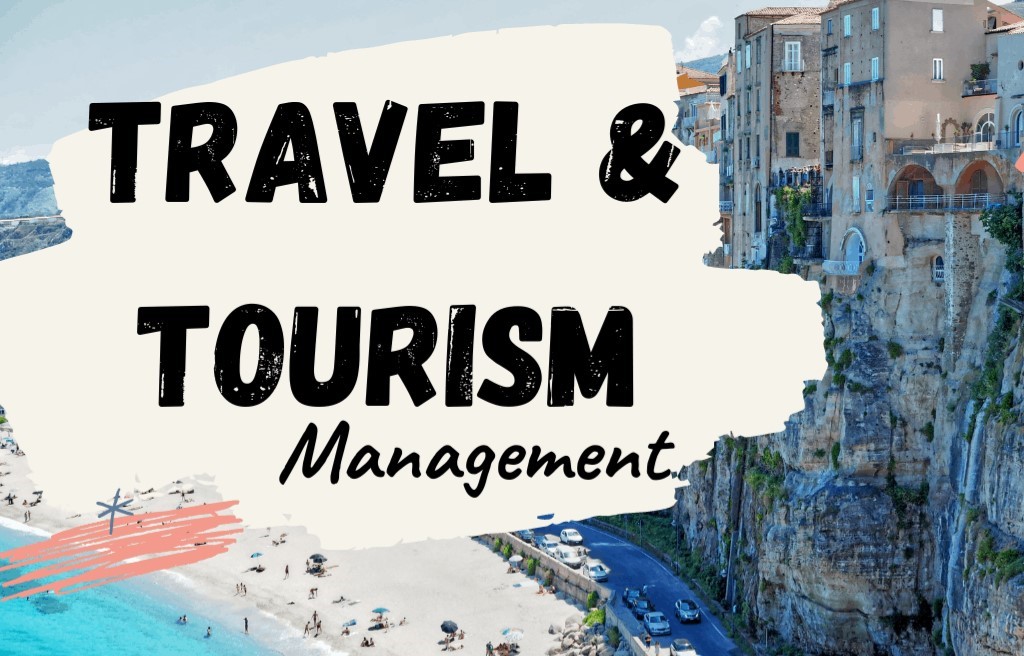
Handling Client Expectations
A key component of tourism and travel management is the capacity to properly manage customer expectations. Travelers expect a lot from their vacations and want everything catered to. Good communication prior, throughout, and after a client’s journey is essential for managing their expectations and ensuring their satisfaction.
Approaches used by the travel sector to fulfill customer demands
Companies in the tourist sector have an obligation to provide first-rate assistance to their clients. Customizing the client experience, providing fast and effective service, and continuously monitoring client expectations and feedback are methods that can be used to increase customer pleasure and loyalty. If you want people to remember your place and come back, you need to make sure they have an amazing time when they visit.
Approaches and Rules for Environmental Tourism
The tourism industry is starting to follow the global trend towards a more environmentally sensitive mentality. The term “sustainable tourism” refers to a way of advertising vacation spots that prioritizes preserving local traditions and minimizing negative impacts on local populations and the environment.
Sustainable Tourism: A Critical Review
If you value the preservation of Earth’s cultural and ecological heritage, then responsible tourism is essential. In addition to increasing employment and economic growth, it helps communities by decreasing overpopulation and pollution. Tourists may help local cultures and ecosystems survive by choosing eco-friendly vacation packages. A more conscientious and productive tourist sector is the end outcome of this.
Environmentally Conscious Travel Promotional Campaigns
A number of green initiatives are being implemented by the tourist sector in an effort to promote environmentally conscious travel. In an effort to lessen their negative effects on the environment, most hotels and resorts have installed water conservation systems and energy-efficient lighting. A small number of cruise lines have also installed cutting-edge trash cans.
Technological and aesthetic advances in the travel sector
The way people plan their travels and how businesses function have both been profoundly affected by new ideas and technological breakthroughs in the travel and tourism sector.
The effect that technological progress has had on the tourist sector

There has been a sea change in the travel and tourism industry as a result of technology developments that have made more destinations accessible and guests more comfortable. Apps for translation and navigation on smartphones, virtual reality tours of famous sites, and online ticket and hotel booking are just a few examples of how technology has changed the travel business. It has also allowed companies to simplify operations and provide better customer service.
New Technology for the Future Participating in Work Related to Tourism
Biometrics enabling faster check-ins, automated baggage management, and smart hotel rooms that provide personalized experiences are innovative advancements in the travel and tourism industry. These advancements are among the subjects being studied. Improvements in customer service, sustainability initiatives, and travel trend forecasting are a few other areas that are making use of AI and ML.
Job Openings in the Hospitality Industry
Marketing, hospitality, event planning, tourist management, and a plethora of other professions are all part of the travel and tourism industry, which provides excellent job opportunities.
Opportunities for employment in the field of tourist management
Operations, marketing, and event planning are all areas where people might find work in the tourist industry. Hotels, resorts, and other travel-related enterprises are overseen by operational people, while marketing primarily aims to promote vacation locations and experiences. Festivals, conferences, and other events aimed at promoting tourism make up the bulk of event planning jobs.
The Essential Competencies for a Job in Tourist Administration
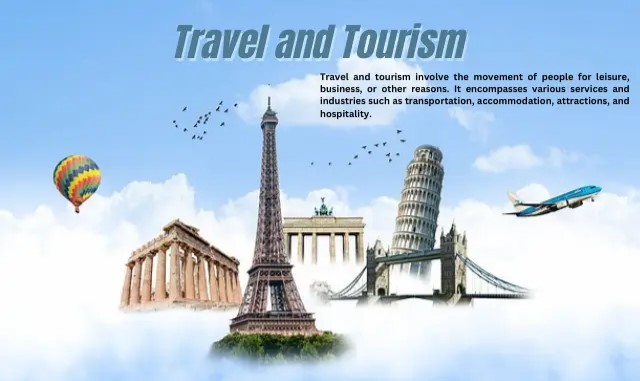
Proficient verbal, written, and interpersonal skills are essential for success in the field of tourist management. They should also have some background in marketing, business management, and the tourism industry. Jobseekers with marketing, business administration, or tourism management degrees are in great demand.
The Future of Tourism and Travel Management: Opportunities and Threats
The ever-evolving global economy will present new challenges and opportunities for the travel and tourism industry in the years to come.
Recent Developments in the Tourist Industry
More personalized customer experiences are becoming the norm through innovative uses of technology like virtual reality, artificial intelligence, and big data. Ecotourism and ecological vacations are also expected to maintain their popularity.
Difficulties Facing the Tourist Sector
Problems such as over tourism, environmental degradation, and uncertain economic circumstances plague the travel and tourism industry. These challenges must be overcome if this industry is to see sustainable growth and promote ethical tourism.
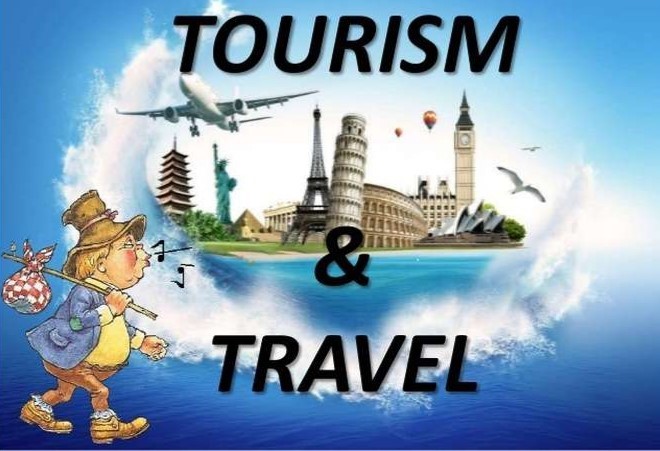
Conclusion
In conclusion, if you are looking for a career path that will challenge you and bring out the best in you, consider a job in travel and tourist management. This field necessitates a wide range of knowledge and abilities, including customer service management, sustainable tourism practices, marketing and management of destinations, and many more. Sustained growth and prosperity in the travel and tourism sector depend on being abreast of new innovations and resolving business difficulties.
Frequently Asked Questions
Q1. What specifically is the function of travel and tourism management?
A. Travel and tourism management is a broad profession that includes a variety of tourism-related operations, including site management, transportation and hotel coordination, and tour planning and organization.
Q2. How likely is it that someone with a degree in tourism and travel management will get employment?
A. There are plenty of work opportunities in the fiercely competitive field of travel and tourist attraction management. Among the roles that are open are those of destination marketing managers, tour managers, event planners, and customer service representatives.
Q3. What are some of the difficulties that the travel and tourism sector faces?
A. Rising costs, changing consumer preferences, worries about the effects on the environment, and tighter security measures are just a few of the numerous difficulties facing the travel and tourist sector.
Q4. Regarding current advancements, where does the field of travel and tourist management stand?
A. In the constantly changing tourism and travel industry, new trends emerge on a regular basis. Trends in this field include, but are not limited to, experience travel, wellness, ecotourism, and technological innovation.











